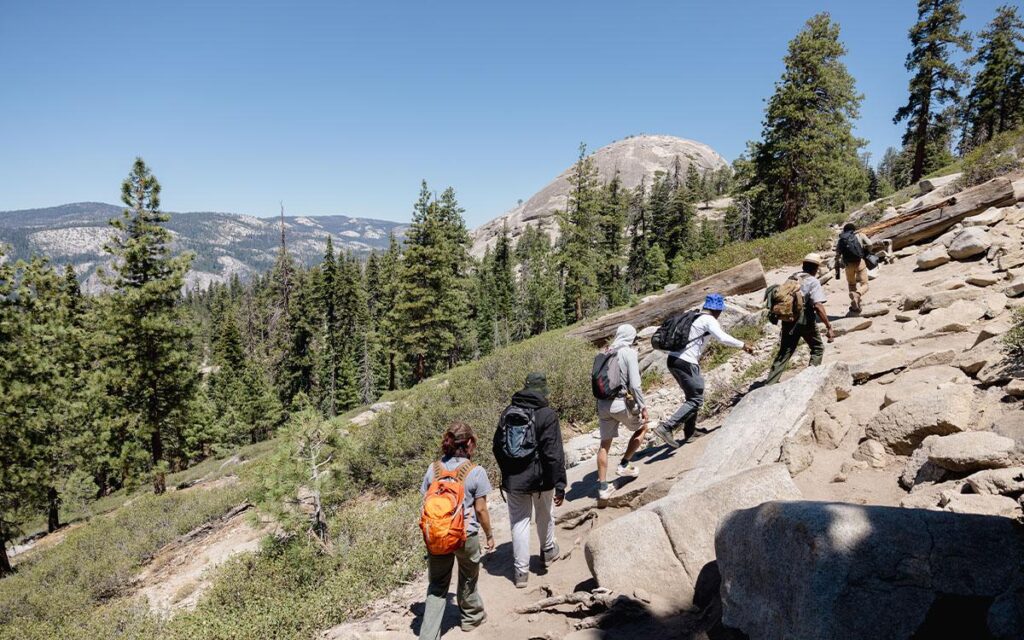Our federal public lands, including parks and monuments, are a collective treasure

Detroit youths enjoy an ICO (Inspiring Connections Outdoors) trip to Yosemite National Park. | Photo by Eliza Earle
“There are so many people in Detroit, Chicago, Atlanta, Washington, DC, Cleveland, and LA who don’t realize that whatever is ailing them potentially could be cured by a visit to a place like this.”
These are the words of Yosemite National Park ranger Shelton Johnson, a strong advocate for diversity in national parks. As a community engagement specialist at Yosemite, Johnson aims to connect people, especially those who lack a historical connection, to nature and national parks.
Recently, Johnson welcomed high school students from his Detroit alma mater, Cass Tech, to Yosemite. The trip was organized by Detroit Outdoors and the Sierra Club.
“You own this. This is your property,” Johnson told the students. “Yosemite, Yellowstone, and the Grand Canyon are your family’s properties. Anytime you visit a national park, the rangers you see work for you, paid by your taxes.”
Johnson emphasizes that America’s public lands, over 640 million acres, belong to everyone, including national parks, wildlife refuges, forests, and monuments.
Diversity in national parks dates back to the Buffalo Soldiers, African American troops who were the first rangers in parks like Yosemite and Sequoia. Learn more about the Buffalo Soldiers.
Making parks accessible to diverse communities is an act of patriotism. Students from Detroit and others deserve transformative experiences like those at Yosemite.
National parks are central to America’s identity and crucial in fighting climate change by protecting wildlife and ecosystems. The Biden-Harris administration has advanced initiatives to balance conservation with resource extraction. A public comment period recently ended on a plan to protect old-growth forests, vital for carbon storage.

National Park Ranger Shelton Johnson celebrates the legacy of the Buffalo soldiers with Detroit youths during an ICO (Inspiring Connections Outdoors) trip to Yosemite National Park. | Photo by Eliza Earle
Efforts to protect public lands include a proposal to preserve Alaska’s Western Arctic as Special Areas, safeguarding a vital ecosystem from fossil fuel extraction. Witnessing caribou migrations and ancient Inupiat structures underscores the need to protect our planet.
National monuments honor sites of natural and historical significance. The newest monument, designated by President Biden, commemorates the 1908 Springfield Race Riot, which led to the NAACP’s creation and a national reckoning with racial violence.
Last week, National Public Lands Day was celebrated, urging Americans to bridge divides of race, income, and geography in experiencing public lands.
Ranger Johnson told Detroit students their presence signified change, representing the future. “You are the future,” he said.
Original Story at www.sierraclub.org
